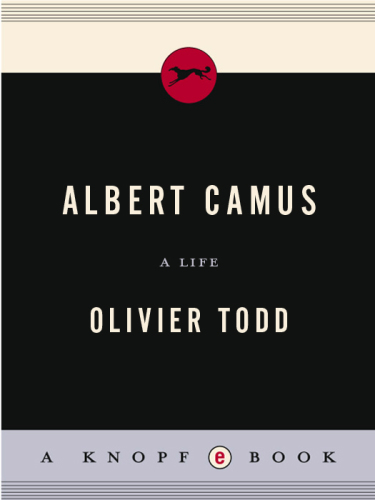
Albert Camus
A Life
کتاب های مرتبط
- اطلاعات
- نقد و بررسی
- دیدگاه کاربران
نقد و بررسی

November 3, 1997
"There is only one serious philosophical problem, which is suicide," wrote French novelist, essayist and dramatist Albert Camus in 1940. He was in Nazi-occupied Paris, where he lived in a "hideous and distressing world." But newly married to a loyal woman to whom he would be repeatedly unfaithful, he boarded a ship with her at Marseilles to honeymoon in his native Algeria. As for suicide, he had been inviting death for years, stresses French freelance journalist Todd, encouraging his chronic tuberculosis with tobacco and drink and a lifestyle that exacerbated his symptoms. Although Camus often questions in his writings whether existence was worthwhile in an absurd world, he made the most of his opportunities. He had a harmless role in the WWII French Resistance, putting out an underground newspaper, Combat, while circulating his manuscripts and involving himself in Parisian theater. With the departure of the Germans, he began publishing his plays and stories. Despite a series of affairs, divorce and a second marriage, Camus found time to write philosophical works, plays and three major novels, The Stranger, The Plague and The Fall. The Nobel Prize was awarded to him in 1957 when he was still a month short of 44, the youngest writer so honored since Kipling. "My life," he wrote in 1941, "is based on the idea that I have something to say and that I will be freed from everything when I have said it." A little more than two years after the Nobel honors confirmed that he had indeed said it, Camus was killed in an automobile crash. Todd's exhaustive biography, which aims--and succeeds--in presenting "the man" and not just the writer, has been shortened for its English translation, which refers readers to the French edition for notes, sources and bibliography. Photos.

August 1, 1997
A best seller throughout Europe; from an award-winning journalist.

Starred review from November 1, 1997
Camus often told friends, Todd reveals, that "nothing was more scandalous than the death of a child, and nothing more absurd than to die in a car accident." And, prophetic as such comments can become, Camus, one of the chief proponents (with Beckett and Ionesco) of the philosophy of the absurd, died in such an accident. He was 46 and only two years before had won the Nobel Prize. Todd's excellent analysis of the writer's life exemplifies the man for whom thought and action were one. Readers familiar with Camus' work will find many occasions to plunge back into it, for Todd evokes the writer's very language just recording his concerns: Camus' love for "sunny, sensual places" prompts a longing to be reading "Summers in Algiers," or the discussions of absurdity are so strong that one recalls the petty predicament of Meursault in "The Stranger" or the high seriousness of "The Myth of Sisyphus." Todd ends up with a well-drawn picture of Camus the tortured artist, the moralistic intellectual under fire by Sartre and that crowd, the avid lover of women. The book is a best-seller in France. It is, too, a finely executed biography of a world-class writer, one that readers and thinkers will ponder and enjoy. ((Reviewed November 1, 1997))(Reprinted with permission of Booklist, copyright 1997, American Library Association.)

























دیدگاه کاربران